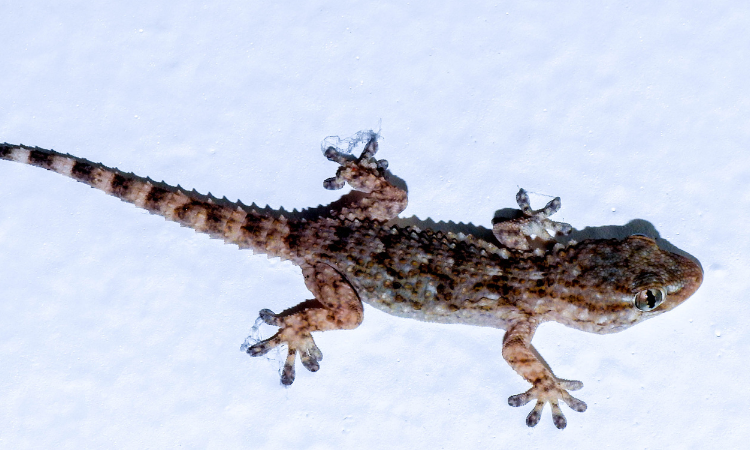One of the most frustrating things a gecko owner can experience is their baby gecko refusing to eat. It may be hard to determine why our little friend isn’t enjoying its food, and as a gecko parent you may feel helpless in solving this problem.
The good news is that there are some steps you can take to encourage your little buddy to enjoy meals again! In this blog post, we’ll explore what could be causing your baby gecko’s appetite loss and how you can get it back on track before any serious issues arise.

Determine if your gecko is in good health – check for any signs of illness or injury
Monitoring the health of your gecko is essential to ensure it leads a happy and healthy life. To determine if your gecko is in good health, carefully observe it daily, paying attention to any potential signs of illness or injury.
For instance, watch out for changes in their skin, coordination, and overall behavior. A healthy gecko should have a vibrant skin color, no visible cuts, bruises or swelling. The eyes should be bright, and the animal should be active, using all its limbs with ease. Moreover, a healthy gecko should exhibit a consistent appetite and have normal fecal matter.
If you happen to notice any changes or symptoms that are concerning or indicative of an illness, promptly consult a reptile veterinarian for appropriate guidance and care. Remember, keeping an eye on your gecko’s health is not only good for your gecko; it is your responsibility as a caring pet owner.
Make sure the temperature and humidity levels are correct for your gecko’s habitat
Creating the perfect environment for your gecko is essential to ensure its health and happiness. To achieve this, it is crucial to maintain the proper temperature and humidity levels in your gecko’s habitat. By doing so, you recreate their natural living conditions, which in turn prevents any stress or illness that may stem from improper settings.
Invest in high-quality thermometers and hygrometers to monitor the temperature and humidity levels regularly. It’s also wise to establish different temperature zones within the enclosure, allowing your gecko to thermoregulate according to its needs.
Another essential aspect to consider is adequate ventilation, which significantly impacts humidity management. With the right balance of temperature, humidity, and ventilation, you’ll create a comfortable and thriving environment for your beloved gecko.

Offer a variety of food options to see what they prefer, such as crickets, mealworms, waxworms, or vegetables
Introducing a diverse mix of food options for your pets or animals is not only beneficial for their overall health, but it also allows you to observe and satisfy their dietary preferences. Some delightful meal choices to consider include nutrient-rich crickets, protein-packed mealworms, or appetizing waxworms.
Even though these creepy crawlers might not sound too enticing, they provide essential nourishments that fulfill the needs of growing geckos.
By offering this assortment of options, you’ll revel in the excitement of discovering your gecko’s favorite delicacies while ensuring they maintain a well-rounded diet.
Try feeding at different times of day – some geckos prefer to eat after dark
You may have noticed that geckos have their own unique eating preferences, and one interesting characteristic of these fascinating creatures is their penchant for dining after dark. Observing geckos in their natural habitat or as a pet owner, you have the opportunity to be swept up in their intriguing nocturnal behavior.
By catering to their preferred eating times, not only will you gain a deeper understanding of their habits, but you will also create a more comfortable environment for them to thrive. So why not experiment with feeding your gecko at different times of day?
Whether you are a gecko connoisseur or simply an admirer, witnessing these creatures emerge from their daytime hiding spots as they eagerly search for a nighttime meal offers an enchanting spectacle that can pique your curiosity and appreciation for these remarkable reptiles.

Consider offering live prey such as dubia roaches instead of dead insects
If you are an enthusiast or owner of reptiles, amphibians, or various species of birds, chances are you’re used to feeding them deceased insects and worms as a staple part of their diet. While these insects provide the necessary nutrients for your pet to thrive, you might want to consider offering live prey such as dubia roaches instead.
This exciting change in their feeding routine not only stimulates their natural hunting and foraging instincts, but it also ensures the utmost nutrition as live prey have a higher moisture content and retain essential vitamins and minerals compared to their freeze-dried counterparts.
Additionally, dubia roaches are known for their high protein and low-fat content, making them a healthier and more satisfying option. So why not add some excitement and variety to your pet’s dining experience while catering to their natural inclinations by incorporating live prey into their meal plan?
Make sure there is plenty of hiding places in the enclosure to provide cover and safety
It’s essential to create an environment in which your geckos feel at ease and can retreat to a place of comfort and security. By ensuring that there are ample hiding spots within their enclosure, you’re providing them with the opportunity to escape from perceived threats and to rest peacefully while feeling protected.
Thoughtfully placed dens or hidey-holes also help in simulating their natural habitats, allowing your pets to display their typical behaviors, which, in turn, paves the way for better connection and understanding between you and your beloved companions.
So, don’t forget to invest time in carefully crafting these cozy nooks and crannies, as it will go far in promoting the overall well-being and happiness of your cherished little friends.
In conclusion, providing adequate care for your gecko is essential to their health and wellbeing. Whether you’re new to geckos or an experienced owner it is important to familiarize yourself with their needs and be committed to providing the best environment possible.
By creating a proper habitat, monitoring health, offering a variety of healthy food options, as well as some live prey from time to time, you can ensure that your gecko’s overall wellness will remain in excellent condition and will live a long and happy life!
Finally, never forget that one of the most important aspects of keeping geckos happy and healthy is spending quality time interacting with them.
Related posts:

Hi – I’m Erika, the lead gecko enthusiast here at Geckopedia! I write articles about pet geckos, including what to feed your leopard gecko and how to help your pet gecko live a long, happy life! I graduated with advanced degrees from UC-Berkeley, the University of Southern California (USC) and Indiana University-Bloomington, where I studied Biology and Animal Science. I use my experience to help others learn about gecko care, and I am an advocate for all topics gecko related!
